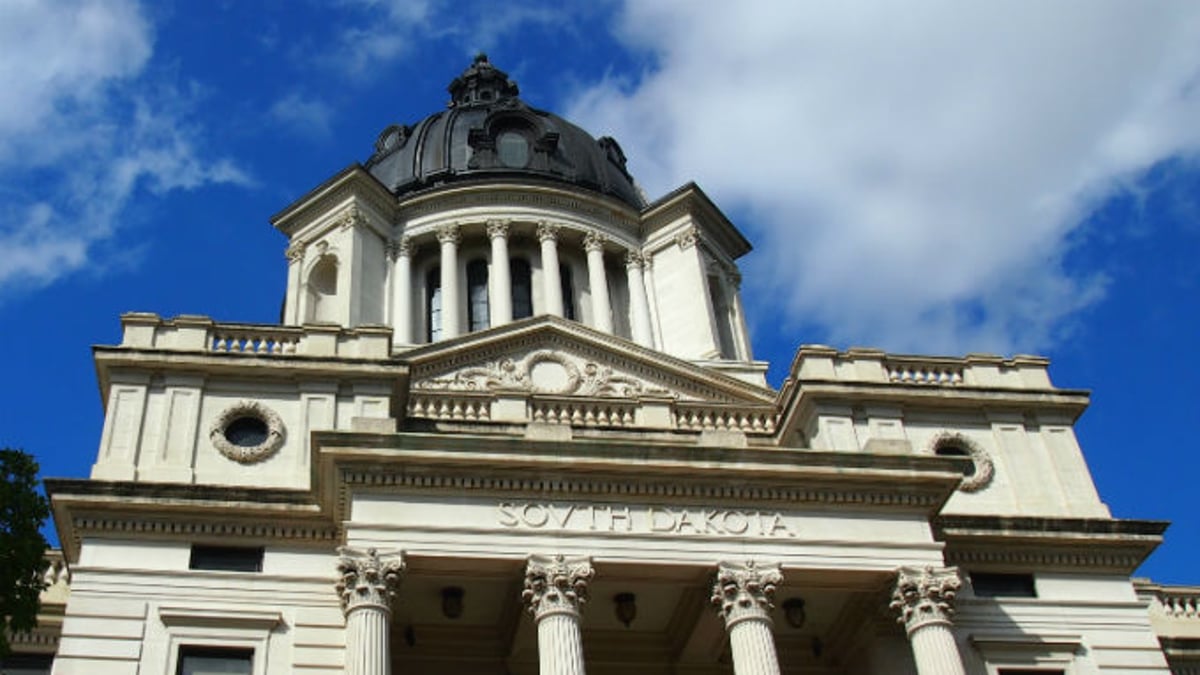South Dakota Sports Betting Dies, Short of Another Miracle

An unusual legislative procedure saved South Dakota sports betting for a day. It now appears lawmakers have extinguished its final lifeline.
South Dakota’s House of Representatives denied a proposal for legal sports betting Wednesday by voting not to place the measure on its legislative calendar to permit further discussion.
Lawmakers voted 33-32 to place the measure on the House calendar, but five members of the 70-person were excused absent. That caused the bill to fall short of the majority, 36-vote threshold necessary to advance.
Had the bill been placed on the calendar it would still need a final vote to pass from the House. If approved there, the bill would have put a statewide ballot referendum before voters to approve or reject legal wagering on sporting events as soon as the 2020 elections.
Baring an unexpected second vote on the issue before the entire House, a push to legalize South Dakota sports betting is over for the 2019 session.
If it wasn’t for an uncommon measure in the statehouse earlier in the week, sports betting would have been rejected already.
After Senate Joint Resolution 2, which would allow authorized gaming facilities in Deadwood and Native American casinos to take sports bets, narrowly passed the state Senate, it ran into even greater opposition in the House. The House State Affairs Committee voted down the bill, which would typically be a fatal blow.
But in a move colloquially known as “smoking it out,” Rep. Tim Johns revived the bill, Rapid City ABC affiliate KOTA TV reported. Johns, who represents Deadwood in the House, was able to put the bill before the entire house when more than a third of the 70-person lower chamber agreed to overrule the committee and put the bill’s fate before the entire House.
By backing the “smoke out” it showed at least a third of the House would vote to schedule and subsequently pass the bill. Unfroutnetly for gaming backers, it still fell short.
After all that, it would still need backing from the majority of the state’s voters in a coming election.
South Dakota’s Gambling Future Remains Enigmatic
The long-winding journey for South Dakota sports betting echoes modern hurdles in an industry with a long history in the state.
South Dakota most vividly permeated the American zeitgeist through the romanticized imagery of the “wild west” replete with cowboys, saloons and gambling. That past is largely behind it, but it keeps that image alive in a limited capacity, most notably in the city of Deadwood.
Made famous as the crossroads for many of America’s most notorious outlaws in the 1800’s as well as the eponymous HBO program from the 2000’s, Deadwood is now a tourist destination that features many of the same iconography of its raucous past, albeit it in a legal, commercialized manner.
That includes nearly two dozen casinos in and around the city. With the exception of a handful of gaming facilities on sovereign tribal lands scattered about the state, Deadwood is South Dakota’s only legal gambling destination.
State lawmakers seem inclined to keep it that way.
The state has a long conservative cultural and political tradition, and the Republican-led government has tended to be skeptical toward most forms of gambling expansion.
That’s again been the case in the 2019 legislative session. In the same week lawmakers from Deadwood fought to allow casinos to take sports bets, other legislators in the House passed a resolution “recognizing the deleterious effects of gambling and video lottery.”
South Dakota Gov. Kristi Noem is among those gaming opponents. Advocating against the sports betting ballot measure mostly due to logistical and regulatory concerns, the Republican first-term chief executive has joined a chorus of opponents.
Though the legislation called for a ballot measure, and thus wasn't subject to a governor’s veto, these high-profile opponents likely helped sway undecided or gambling-skeptical lawmakers.
How South Dakota Fits in the Sports Betting Race
Even if passed by the legislature and/or voters sometime in the future, South Dakota sports betting would be a minuscule fragment of the multi-billion dollar industry. Sports betting itself is a small slice of the gaming industry's overall revenue stream, and would merely be an additional amenity to attract visitors.
Online and mobile betting, which garners the majority of total revenue for gaming entities in other states, isn’t part of the current bill and hasn’t been formally proposed in Pierre.
Because of this, even the most liberal estimates project the state government would only garner a few hundred thousand dollars a year at most from sports betting, which opponents from the governor’s office argue wouldn’t be worth the regulatory hassles needed to legalized wagering in the first place.
Still, the push to legalize betting in a conservative state like South Dakota could be a role model for other states thinking about doing the same. Border neighbors like North Dakota and Minnesota have also considered sports betting, and the nearly successful effort by South Dakota could prod those two, and others in the region, to do the same.
The Mount Rushmore State could have been one of the first dozen or so jurisdictions to legalize sports gambling, and potentially just the second (after Arkansas) to do so by a ballot measure. Instead, it will watch from the sidelines as around two dozen other states consider doing so.
South Dakota’s sports betting odyssey is also noteworthy for its circuitous route. While Deadwood may never rival Las Vegas, the winding road to sports betting legalization in one of the nation’s least-populated states has been one of the more fascinating stories among the more the host of jurisdictions considering doing the same.
Stay In The Loop With Free Bets, Insider Tips & More!
Live Betting. Sports Promos. Sent Weekly.







